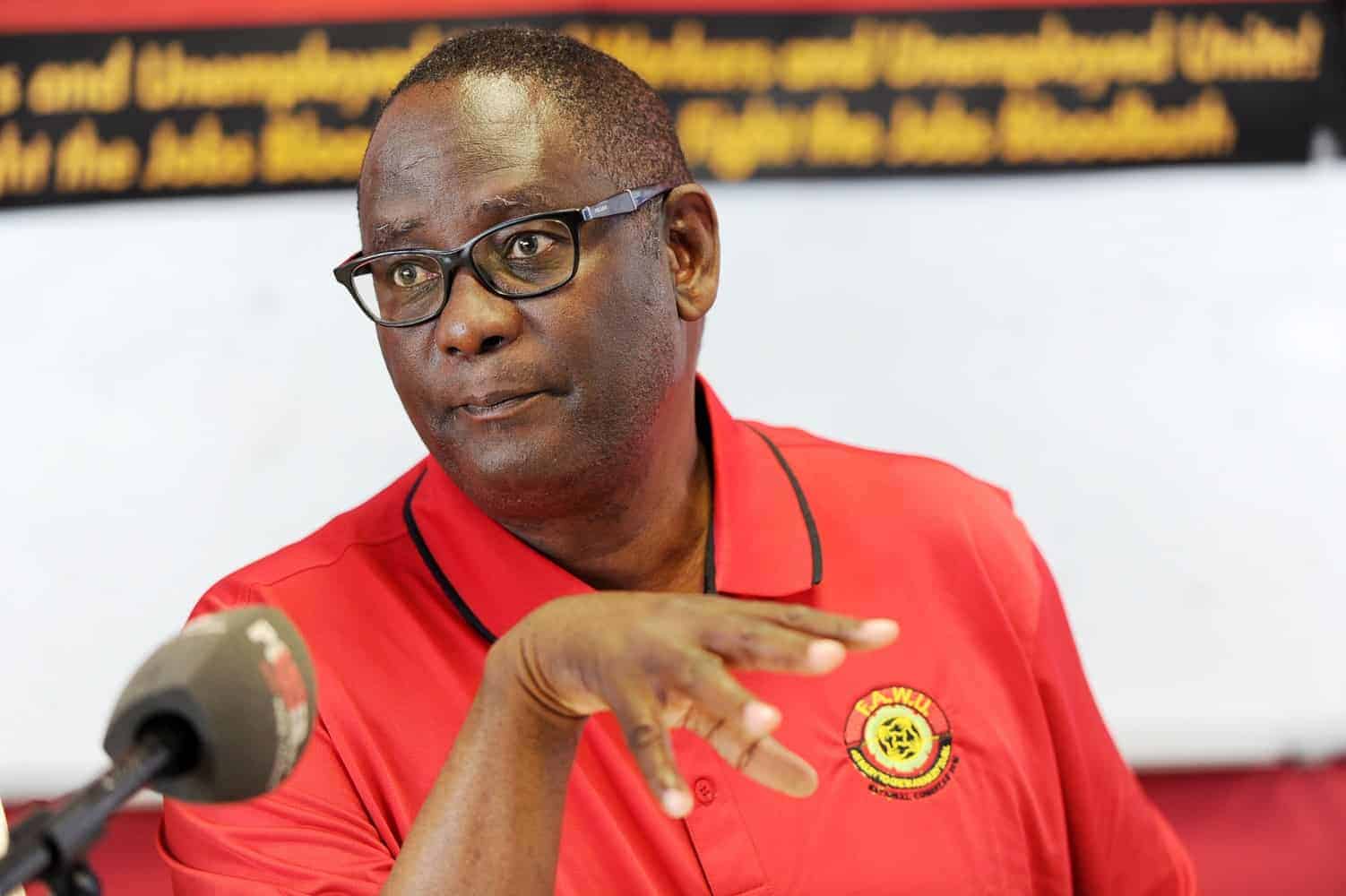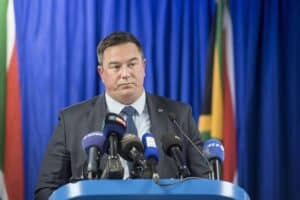Unions blame austerity measures for the shortage of essential government workers.

South African Federation of Trade Unions (Saftu) general secretary Zwelinzima Vavi is criticising Lieutenant-General Nhlanhla Mkhwanazi for his controversial comments on unions.
Mkhwanazi suggested that unions are to blame for the shortage of police officers in KwaZulu-Natal and other parts of the country.
He was speaking at a government crime stakeholder engagement in KZN on Tuesday.
“They are going down more thanks to who? The unions. The labour people who said we want higher salaries for our employees.
“So, the more government increases salaries, the fewer they employ. The fewer they employ, the more crime there is. The reality is that too many things are wrong in our country which contribute, and labour laws are among those,” said Mkhwanazi.
Saftu disagrees with Mkhwanazi
In a statement on Wednesday, Vavi lambasted Mkhwanazi for his comments.
“Saftu strongly disagrees with the assertion by KwaZulu-Natal Provincial Police Commissioner Mkhwanazi that union demands for higher salaries are hampering efforts to fill policing vacancies,” he said.
The danger of Mkhwanazi’s comments
Vavi said Mkhwanazi’s comments have the potential to distort the real issues that face employees in the police force.
“Mkhwanazi is a respected public servant with the courage of his convictions. Saftu hopes he will direct his critique toward the real adversary: systemic under-funding and austerity that squeeze public services and leave policing and democratic security fragile,” he said.
Vavi said the federation is also concerned that there are not enough police officers for the high numbers of civilians in various parts of the country.
“The South African Police Service (Saps) currently operates at approximately one police officer per 423 people (as of 2023), falling significantly short of global benchmarks.
“Other reporting reflects even worse: one officer for every 427 citizens noted in the 2024-25 annual performance plan,” he said.
The need for adequate salaries
Moreover, Vavi said police men and women should be paid adequate salaries because of the nature of the work they do and the associated risks.
“Government must provide living wages that reflect the risks and responsibilities of policing as well as the rising cost of living,” he said.
Who is to blame for the shortage of police?
According to Vavi, austerity measures, lack of resources and a low number of police are also to blame for the high levels of crime in the country.
“Budget cuts, not wage demands, are the real crisis,” he said.
Who is protecting South Africans?
He said the situation is so bad that many South Africans are now relying on private security companies for protection.
“Private security has surged with more than 2.7 million registered private guards, now outnumbering police and military combined.
“This shift underscores a stark reality. Only the wealthy can afford protection, while the majority, especially in working class and informal settlements, are left dangerously exposed.”
Police training
Despite this Vavi said he agrees with Mkhwanazi that police officers must be properly trained.
“Government must invest in training, tools and accountability structures, so each officer is equipped, professional and trusted by the communities they serve,” he said.
The Congress of South African Trade Unions said they are also disappointed in Mkhwanazi’s remarks.
“These remarks are misplaced, out of context and risk creating unnecessary tension between the labour movement and law enforcement leadership,” said the federation on Wednesday.
ASLO READ: ANC to discipline Gigaba and Mchunu over ‘opportunistic assault’
Mkhwanazi’s explosive allegations
Meanwhile, the Madlanga Commission, which is tasked with investigating the allegations that Mkhwanazi made against Mchunu, is expected to begin its work in September.
Mkhwanazi accused Mchunu of interfering in police investigations.
He also claimed that there was a network of corrupt officials in the National Prosecuting Authority, the judiciary and the police.
Parliament has also formed an ad hoc committee that is investigating the same allegations.
NOW READ: Here are some of the rules outlining Parliament’s Mkhwanazi allegations probe

Support Local Journalism
Add The Citizen as a Preferred Source on Google and follow us on Google News to see more of our trusted reporting in Google News and Top Stories.








